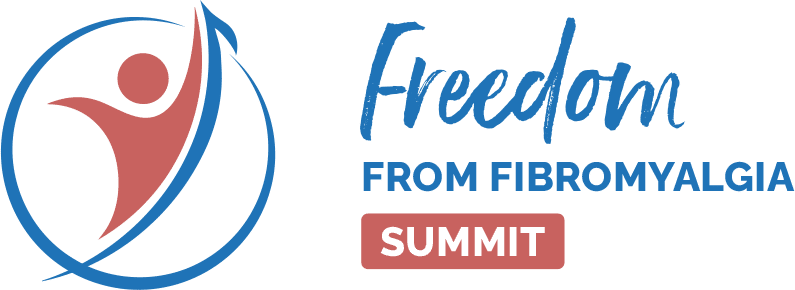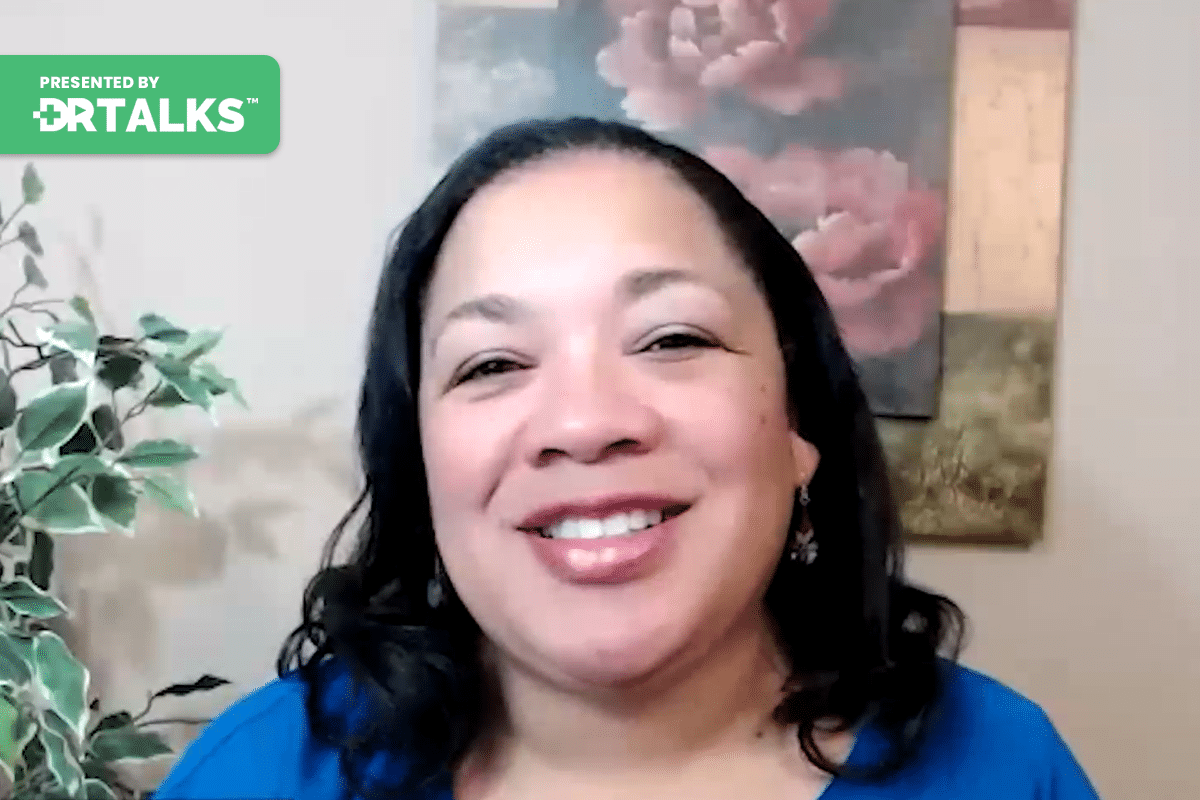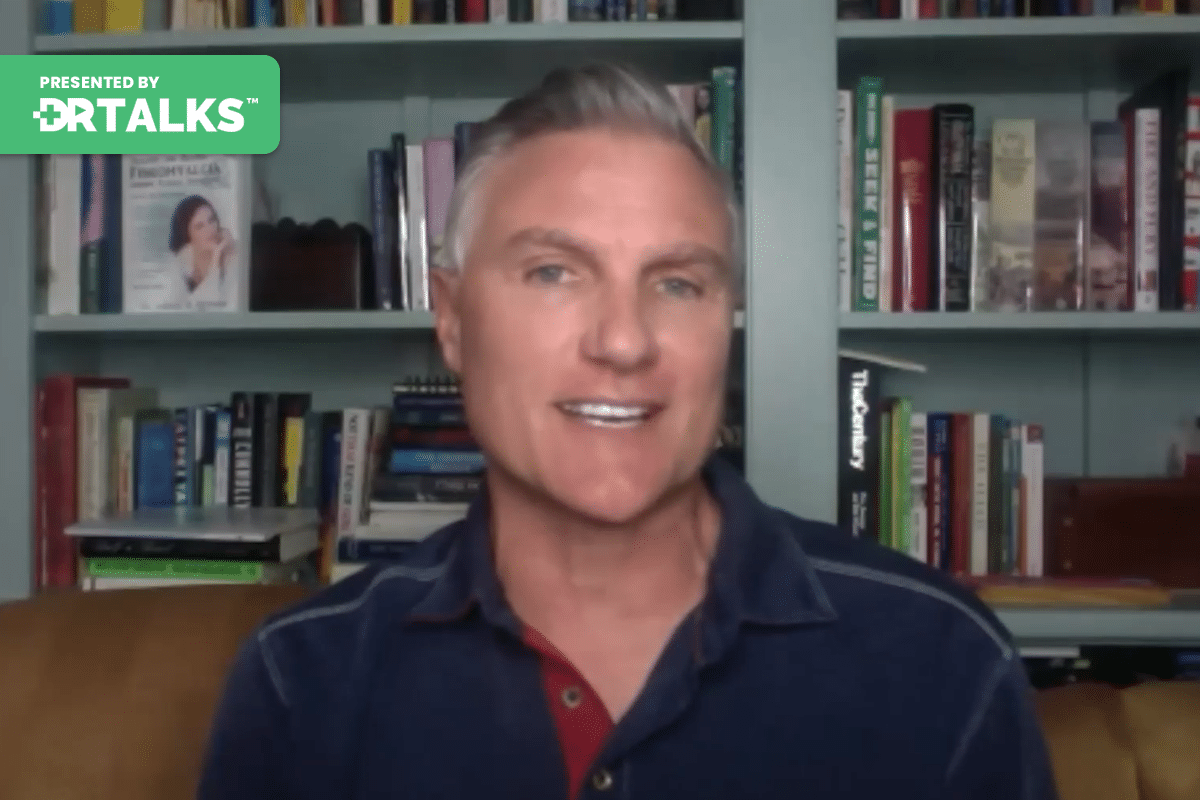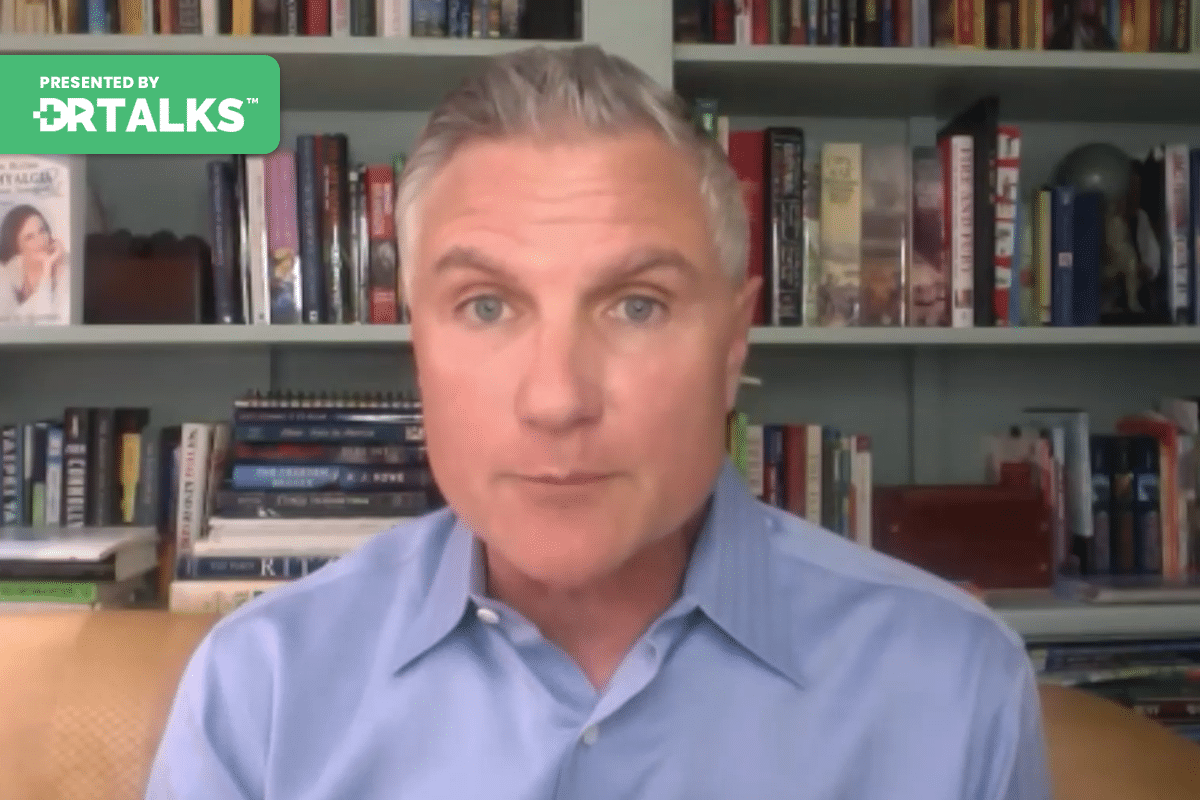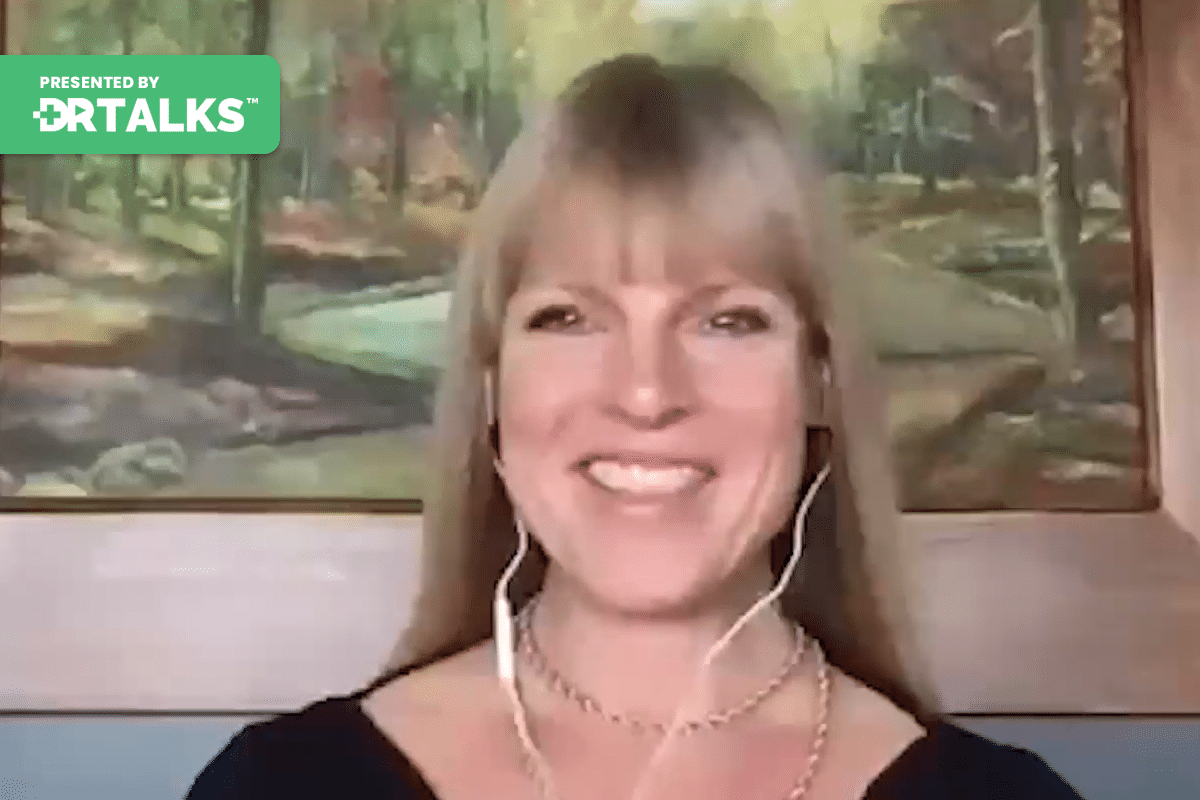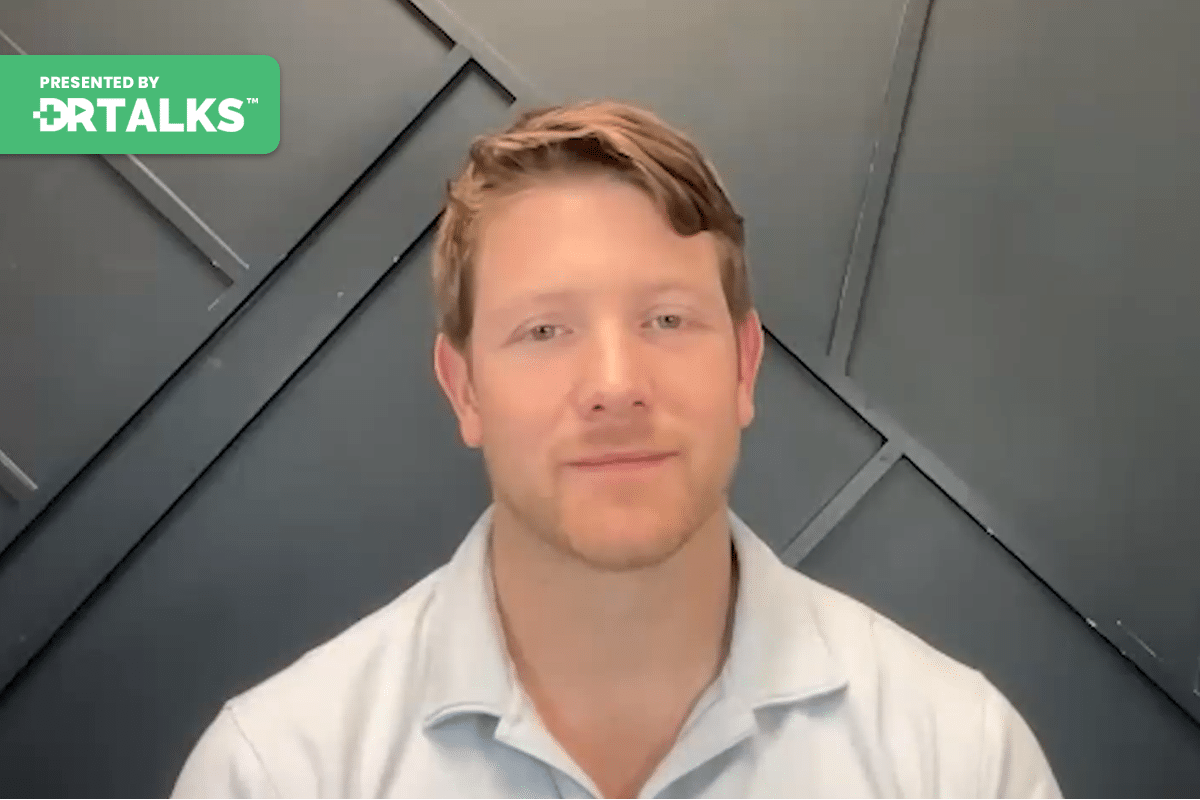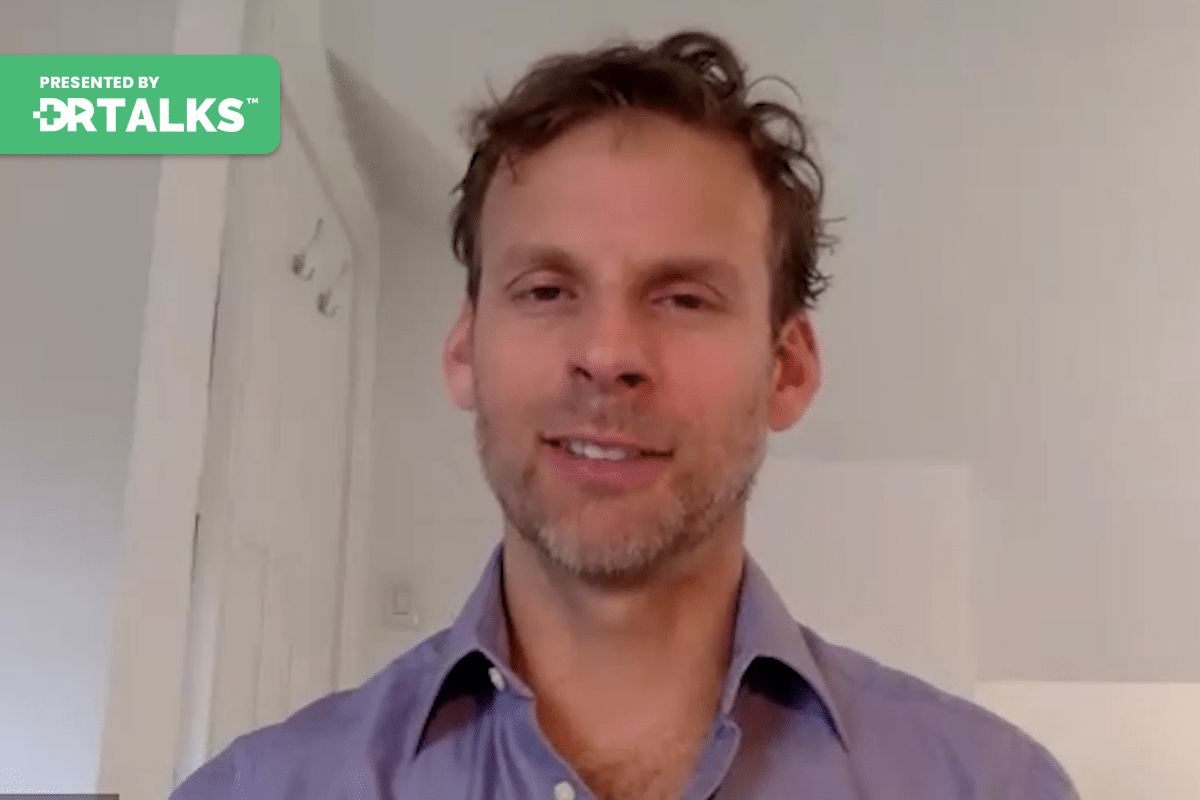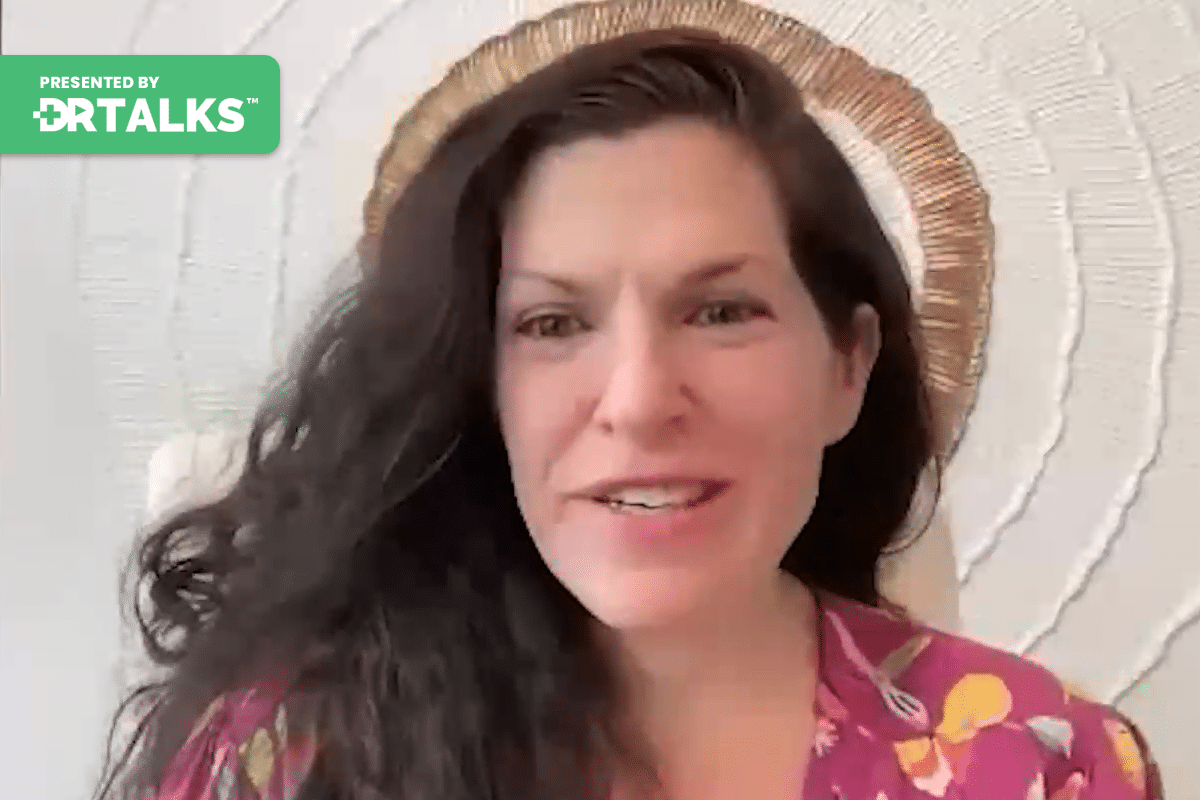Join the discussion below

Dr. Rodger Murphree is a chiropractic physician and board certified nutritional specialist. He is an internationally recognized fibromyalgia expert. His “Murphree Method,” a combination of functional and orthomolecular medicine, has helped thousands of patients get healthy and feel good again. He’s the author of 3 books for patients and doctors including... Read More
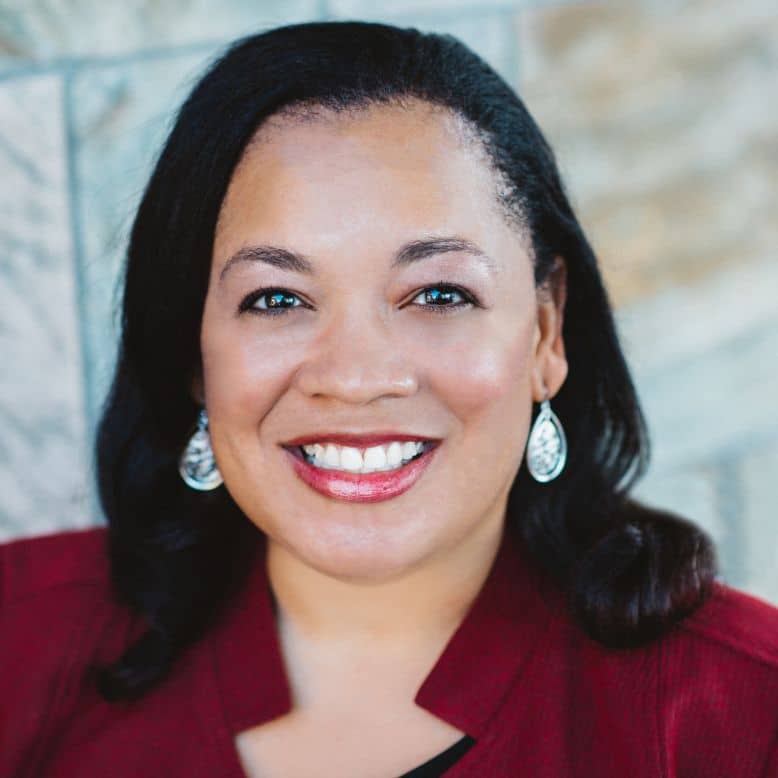
Dr. Saundra Dalton-Smith is a Board-Certified internal medicine physician, work-life integration researcher, and CEO of Restorasis, a workplace wellbeing consulting agency. She is an international well-being thought leader featured in numerous media outlets including Prevention, MSNBC, Women’s Day, FOX, Fast Company, Psychology Today, INC, CNN Health, and TED.com. She is... Read More
- What are the 7 types of rest you need today
- Do you have a rest deficit?
- Steps for getting the rest that you need to increase your energy
Related Topics
Brain Dumping, Central Sensitization Pain Syndrome, Circulation, Cognitive Fatigue, Energy, Ergonomics, Fibro Fog, Fibromyalgia, Flexibility, Foam Rollers, Lymphatic Drainage, Massage Therapy, Mental Rest, Overthinking, Physical Rest, Rest, Sleep, Stretching, Sympathetic Nervous System, WorkplaceRodger Murphree, DC, CNS
Hi. Welcome. I’m Dr. Rodger Murphree, and I am the host of the Freedom from Fibromyalgia Summit. And I want to welcome Dr. Saundra Dalton-Smith is an internationally known wellness expert. She’s the author of several books, including her, her bestselling one that I wrote for me with all you’ve Got, another one just came out when you talk about it as well. But her bestselling book is Sacred Rest Recover Your Life, Renew Your Energy, Restore Your Sanity. I mean, that’s that’s that’s an appealing book title of the ever heard it in today’s environment for sure. Dr. Saundra is also a board certified internal medicine practitioner, and I find it very refreshing to have someone in the medical community talking about this spiritual and mental emotional health, something that really is a topic or doesn’t come up very much in practice. So I’m so glad to hear you sharing this, both with your patients and with the public at large. Saundra, thanks once again for being part of the summit. Thank you so much for being here.
Dr. Saundra Dalton-Smith
Thanks so much for having me. It’s my pleasure.
Rodger Murphree, DC, CNS
Well, listen, I just want to dove right in because, you know, every time we’ve it, we’ve had a chance to meet, we get off on some really interesting side tangents. We go down some paths that we that I wasn’t expecting to talk about. So we’ll make sure we got plenty of time. But tell me, tell me. You know, when people hear about rest, they think I just need more sleep. And in the fibromyalgia community, I mean, that’s something that I really talk quite a bit about. The importance of that deep restorative sleep, but yet so many people, they get 7 hours of sleep, 8 hours sleep, 9 hours sleep, but they never feel rested. So there’s really a difference between sleep, rest and just the rest that you’re trying to share with, with the world, right?
Dr. Saundra Dalton-Smith
Yes, absolutely. I think many people, as you mentioned, when they hear the word breath, they automatically think about sleep. But and sleep is important. Don’t get me wrong, it’s a part of rest, but it is not the summation of what rest is. And I think when we only look at rest as cessation type activities, sleeping, stopping, napping, you know, giving something up or taking something off our to do list when we look at rest is only being related to those things. We really need the core of what rest is about.
Rest is really about restoration. It’s about pouring back into places that have been depleted. Sleep does do that, but so do so many other things. And so one of the things that I’m oftentimes helping people understand are what are their personal deficits? Where are the areas in their life that are being depleted but they don’t have a restorative process in place. So because that place stays depleted, they always feel drained, tired, fatigued.
Rodger Murphree, DC, CNS
I think this is a really important topic for the public at large, that in particular the fibromyalgia community, because as you well know, we’ve had this conversations in the past. These are individuals that have burned out. You know, they’ve been under stress, either long term stress or an acute stress. There’s a straw that, you know, that breaks the camel’s back. Something comes along and they just can’t recover. And typically that is something that’s happened over a period of time and they just get so run down in these different areas that we’re going to talk about that they just can’t regroup. I mean, there’s no fuel for that.
There’s you know, there’s just it’s a process, really, I think, of getting to know yourself again and listening to your body into your mind, into your spirit, something you talk quite a bit about in your book, but in the fibromyalgia community, I think it’s so important that you you grasp this this concept of taking care of yourself, that no one else is going to do it. No one is going to throw you a lifeline. I mean, you have to you have your own rest recovery process.
So let’s dove right in. I mean, first one we know is physical. I mean, everyone knows about that. That’s obviously something we see in the fibromyalgia community. You’re just physically there, exhausted. What? Jeff, let’s talk about step one. So are there seven types, I guess I should say? Right, seven types. So let’s talk about type one, which is the physical rest that they need.
Dr. Saundra Dalton-Smith
Yeah. So physical obviously does include sleep. I think sleep is important. But when we are looking at it, the physical type of rest is divided up into two components. We have the path of sleeping, napping, those type of things. Then we have an active component of physical rest, which is definitely important for anyone who has any muscle issues, joint pains, any type of body discomfort, because the physical part of rest are those restorative processes that improve circulation, they improve lymphatic drainage, they improve your flexibility. So we’re talking about things like foam rollers, massage therapy, you know, leisure, walk, stretching, anything you do that actually helps your body be able to heal itself.
And I think you’re so right. When we when we look at how patients care for themselves and how they approach their own health care abilities to kind of control that, there has to be a bit of self-reflect cushion because for each person, you know, one person might need more of one type of rest or more of or something might work for one person that doesn’t work for another. So there is a lot of individuality that comes into play when you’re looking at these different types of breath deficit because it is going to take into effect. What kind of work do you do? You know, is there a job sedentary? Because now we have to look at what are the ergonomics of the workstation where you sit at.
Yeah, you know, is your work desk and your chair, you’re sitting in toxic to your body? Is that what’s adding to your ongoing joint pain or are you a day care worker or someone who’s lifting babies all day? But you’re not taking into account that lifting ten, 15, £20 repetitively is a form of exercise. So you’re not stretching or doing those things after work or even during work to help keep the muscles loose and from getting tightened up. So we have to evaluate our own personal baggage, so to speak, that we bring into those deficits and look at what are some of those things that we can do just by being aware of how our lifestyle affects our body.
Rodger Murphree, DC, CNS
So it’s type to the second type is is mental rest. So that’s a big one. So, you know, my patients, I say they’re just they’re exhausted mentally. They’re just they and partly due to the fact they hadn’t slept very well. So that’s, you know, type one, but mentally they’re just exhausted. So they have this thing we call fibro fog where they can’t really get a thought together and they lose their, you know, their train of thought in mid-sentence. And it’s it’s really frustrating to be one of those and, you know, to be an individual oftentimes who is a successful banker or lawyer or just an a successful mom, even, you know, and you can’t even get a thought out because your brain is just so rundown and you’re so tired. So let’s talk a little bit about that type of person.
Dr. Saundra Dalton-Smith
Yeah, mental deficits are really relevant for a lot of people just because of how overactive we keep our minds. Many of us are over processors. We’re always ruminating thoughts and kind of thinking things over and over again. I know a bit complain a lot of patients have are they you know they lay down at night their exhausted they want to go to sleep but their mental rest deficit is actually what’s keeping them from going to sleep their mind thinking all the things so they’re ruminating over their to do list the next day, their conversations or they’re finding that they are excessively forgetful or have a hard time concentrating above and beyond what would be typical for someone of their age.
And so some of the things that we’ve found that have been helpful with mental rest deficits, first of all, is evaluating are you doing thing that that keep your brain from being able to turn off at night? Are you doing things that kind of overprocessed becomes the normal or are you watching highly engaged TV right before going to bed? So you’re, you know, or reading a book, reading. A lot of people think, okay, well, that’s going to be really calming and it may be depending on your personality. However, if you’re a natural over process or you may be reading something that you think, Oh, well, it’s reading, so it’s calming, but you’re reading about something that now is activated. Your brain to start thinking new thoughts. And so now you’re processing all of that information.
A very simple tactic we have for a lot of people is to value is to do something called brain dumping as the simple term you whatever thoughts are ruminating around in your head rather than allow them to continue that rumination you jotted down on something, whether it’s a notepad or Post-it note, you know, wherever you can log that data, what happens in that process is you’re giving your brain permission to release it. It no longer has the onus that it has to keep that thought in its head all night to make sure you don’t forget it. It’s safely recorded somewhere so that you can then turn off that part of your brain to be able to release that thought and go to sleep.
Rodger Murphree, DC, CNS
You know, I think for most people, cyber magic, they’re just so overwhelmed. And part of that is they’re and these these types kind of run in together. Right. I mean, you can see a pattern of there’s a little bit of a dysfunction in these different types, that blip that kind of bleed over into everything for some folks and in particular, fiber magic is a no. We’re going to talk about sensory overload here in just a minute. But the mental one where they just feel like their brain is not working like it should, and then they get in this vicious cycle where they just can’t turn it off. The monkey mind what I call the monkey mind. And that’s exhausting. So a lot of these folks are wired and tired, and a big part of that is their sympathetic nervous system. They’re stimulating part of their nervous system just will not turn off for these folks. We know they have a condition called central sensitization pain syndrome, where their nervous systems not communicating with their hormones. And so they have this wired in tired. And what I share with a lot of times in our patients is, you know, what you share in your book.
One thing that’s been really helpful for me, which you just mentioned, was journaling number one in the morning, just kind of write my thoughts down every morning. I just kind of get them out there and seize anything that’s bothering me and just put it on paper. And once it’s on paper, then, okay, I’m kind of done with it, you know, I come back to it, but I don’t have to obsess about it. The other thing that’s been really helpful for me in a lot of my type-A fibromyalgia patients is I have them at the end of the day to write down their to do list for the next day.
And that was really a game changer for me as a type-A person and an and a recovering insomniacs was to make sure that instead of just laying there before I go to bed and thinking about, oh, yeah, I need to this and do that, I just take 15 minutes early in the evening and write all that down in my in my daytime or now, you know, and I’m old school, but I have it, you know, here. And I had it all written down. And to me, once it’s written down, I can let it go. And that’s really what you’re talking about, right?
Dr. Saundra Dalton-Smith
Yes. I think that that’s so important and it works both ways. So as you mentioned, whether you’re writing down like an activity or, you know, a brainstorm or a thought that popped up or you’re writing down something that emotionally hits you, you know, sometimes people are processing their emotions that night because that’s the only time they’re still in quiet. However, that’s not really the appropriate time when you’re supposed to be sleeping. So jotting it down, whether it’s, you know, just on a notepad, it gives you an opportunity to go back and revisit that. But then that doesn’t become the barrier to you actually getting higher quality sleep.
Rodger Murphree, DC, CNS
Yeah. So the type number three is the sensory rest. And really this is one that I think that everyone messes up. It is, you know, they’re deficient in, in this sensory energy that they’re really seeking which, which sabotages their sleep. Oftentimes they’re just overstimulated. And a lot of times they, you know, they’re tired all day. They’re exhausted. And then they’re one of these folks that catches their second wind at bedtime. And a part of that is they didn’t take the time to really wind down. They were tired all day. They got a little bit of energy. Instead of just kind of acknowledging it and letting it go, they dove right in and they start doing everything they had been able to do all day because they just couldn’t get that motivation.
Dr. Saundra Dalton-Smith
Yeah, I think something you said there was so key. We have to be aware to even get to higher quality sleep. Your body has to wind down at some point in time. Is the reason we have our circadian rhythm is the reason why it gets dark at night. You know, your body’s designed to have a period where it winds itself down so that you can drift off into sleep. And so we have to be aware that there are some things that we do in our natural day that revs up our stress response. And a big part of that tends to be the sensory input that are inside that our day, that lead to sensory overload type symptoms. You know, many of us when we respond to sensory overload, it’s more in the form of irritation, agitation, rage and anger.
It’s kind of it drives something up inside of it makes us more wired, as you mentioned. And so I think one of the things to keep in mind is what are the sensory inputs within your day, not just in the evening, when you go home, but throughout your day? Are you, you know, are you in a house where you’re hearing background noise the entire time you’re working? I’m are there bright lights? Are you on your computer all day? Are you hearing phones ringing or machines whirling in the background? Or are you a nurse and you’re having ventilators go on holiday and EKG, machines BEEPING, you know, or elevators going up and down. Oftentimes these things that we kind of tune out that we say, oh, I’ve tuned it out, I don’t even hear that anymore. You may have personally feel as if you’re tuning it out, but your brain’s processing it.
That’s the only way you can tune it out, is for it to go in, get filtered and get blocked. And so the brain is active. The entire time it’s tuning that out. And so that is draining a part of you, whether you are conscious of it or not. So sometimes at the end of our day, we’re like, Why am I so drained? I just sat at this, you know, computer or whatever it is all day long. Why do I feel so zapped? Yeah, that’s a big part of it.
We’ve been using energy we’re not even consciously aware of. And so it’s important to to then make yourself aware of what are the sensory inputs in my environment and what are some things I can do to offer moments of sensory rest, whether that if you’re someone who, let’s say, works around a lot of machinery or maybe your office is beside an elevator, or you’re hearing that drinking all day long, maybe have 30 minutes where you put some noise cancelation earbuds in and zone them out. You know, if you do a lot of flying planes are noisy, whether you are at a mind of your own business and not talking to your companions or not, you hear that roaring sound continuously. Then you know something noise cancelation in maybe in between zoom meetings. Taking a moment just to close your eyes for 5 minutes rather than checking your email. Just to give your body moments of sensory deprivation so that you can kind of downgrade some of that stress response that continues to rev up if you don’t allow yourself those moments.
Rodger Murphree, DC, CNS
Yeah. So one of my interviews with Dr. Rob Downey, we talked about the brain just not turning off and he he shared this example about, oh, being overstimulated where you go into this this crowded room, there’s, you know, 200 people in there, big audience and, you know, big, big celebration going on. And you have all these different conversations going on and you’re having to process these all these conversations. But then you get into a little smaller group and before you know it, you tune all that out. And all you’re doing is listening to this small little circle of individuals right here. But your brain is still processing all this. You still have to tune that out. And this is something that is doing all day long to matter.
If you’re at a celebration, a big party, or you’re just at your home and you got the radio playing and you got your kids got the computer on and you got someone’s got the TV on. And you know what? Whatever that noise is, whatever that stimulation is, bright lights, loud noises, you’ve got to process it. And what makes it really difficult for those for fibromyalgia is they have really kind of bankrupted their stress, coping chemicals, these chemicals that normally are released to allow us to deal with this stimulation that they don’t they don’t really have them. And so they’re overstimulated all the time. Little things that most people would take for granted. It really can really sabotage them and send them into a thing called a fibro flare. So the sensory rest, I think is so important for these individuals is just to turn everything off and just find some peace and quiet and make that a habit every day.
I call it the hour power. And, you know, some days I don’t have an hour, you can find an hour. I mean, you’re watching Yellowstone or, you know, whatever you’re doing, find some time alone and nurture yourself. Right. I mean, this is something that you talk about in your TED talks, in your book. I mean, this is really the center part of what you are sharing with others. You just got to make that time for yourself, right?
Dr. Saundra Dalton-Smith
You do. And it’s one of those things where, you know, if you start off and you’re looking at your schedule and you’re saying to yourself, I can’t find an hour, what can you find? You know, rather than saying, I can’t, what can you do? You know, is there 15 minutes? You could start with 30 minutes, 20 minutes, three, 30 minutes. You know, whatever it wherever you feel like you can begin, you have to begin somewhere. And so I always recommend people who feel like they don’t have time for rest stop looking at it as just as this big thing that you have to find this huge block of time for mind, at least a chunk of time, 15 minutes minimum, where you can begin so that then you change your vocabulary from what you can’t do to what you actually can do to help support yourself.
Rodger Murphree, DC, CNS
Yeah. So number four is creative rest. So this is one that’s really probably not talked about very much and yet it’s very important. It’s something that is a big piece of the puzzle of making you whole right.
Dr. Saundra Dalton-Smith
It is creative energy is used by most of us throughout the day, but we don’t really consider ourselves to be creative. So, you know, anytime you’re solving problems or having to think outside of the box or come up with new ways of doing things or even finding ways of doing old things that have changed, you’re using creative energy. And so a lot of times we’re using creative energy throughout our day, whether you’re a stay at home mom or you’re someone who is, you know, an architect, you’re using creative energy.
And so because that’s a type of energy we’re using, it can be depleted. And so a lot of times people will say, you know, I’m doing all of the things I’m getting massage therapy, I’m sleeping eight, 9 hours a night. You know, I’m doing all of these types of rest, but I’m still feeling tired. But then when we start talking with them, we find that they are using a lot of the creative energy without an outlet for pouring back into that part of themselves. And so creative rest is experience when we allow ourselves to appreciate beauty in whatever form, whether that’s natural beauty, when you allow yourself time out nature to look at the mountains, the trees, the ocean, the beach, or this man made beauty.
When you’re allowing yourself time to enjoy art or theater or music or dance or any of those types of things. So we need to be aware that there’s a place for that. Some people call it a time for play, but there needs to be a place where you can allow what has already been created an opportunity to restore and to feel that part of yourself back up. And oftentimes that gets pushed to the side because we feel like it’s less important. But that’s a part of energy that many of us use throughout our day.
Rodger Murphree, DC, CNS
Yeah. So when I think of creative rest and nurturing that energy, part of that for me is having an outlet that could be a hobby. So that can be gardening, that can mean that can be for you. That could be your creative, nurturing spirit, right. You know, comes in different forms. And that’s what rejuvenates me is being out in nature and being active, being physically active and allowing myself to be able to turn off all this chatter about what I need to do when I shut it down. You know what I will be doing next week and so I really encourage my patients when I’m working with them to have some type of outlet, a hobby that they can enjoy that makes them happy. What is that? And there’s so many different things out there that can fulfill that need. But so the next one, though, is emotional rest.
So let’s talk about emotional rest because, you know, man, I tell you, we have been on the roller coaster in the last two or three years. I mean, with everything that’s going on, I don’t know that about you personally, but I felt just emotionally a lot of times I felt drained just because I feel like, you know, I’m just I’m exhausted emotionally. I don’t really feel like I can give what I’d like to give sometimes to my family or to my patients because I just feel just wiped out sometimes emotionally.
Dr. Saundra Dalton-Smith
Yeah. So emotional rest looks at how freely you feel you can share your emotions with others, that ability to be transparent, vulnerable, to be authentic about what’s going on in your life. And so we all have those times when we have to be more professional or somewhat inauthentic because we have to be harder. Yeah, yeah. Because everyone’s not a safe place. And sometimes just in your position, it requires the amount of emotional labor just to stay professional.
You know, an example that I will use is if you’re a as a physician, you know, if I’m seeing a patient in the ICU that I’ve been treating for 20 years and they’re at the end of their life, I’m sad about that, but it’s not going to do my nurses or my patients family any justice for me to burst into tears in that moment. I have to keep a level of professionalism, same as a no fly attendant who’s dealing with a jerk. And I have to keep a smile on their face, you know, well, because that’s being professional. So I think we have to be aware that some emotional labor we take on is a part of our own professionalism. However, there has to be a time in our lives when we feel completely open to say what we’re feeling and not feel. We have to hold back on our feeling.
And I find a lot of people don’t do that. They keep that kind of professional, emotional labor in check with everyone. Families, friends, everyone they encounter thinks that, Oh, they’re good. And that’s kind of the vocabulary they may even use. But that emotional labor is a weight to bear. It’s a strain on their emotions. And over time it leads to some symptoms, whether that’s depression or anxiety or whatever it is, it starts leading to some emotional, unhealthy situation. So we need to identify who are the people who you feel safe to share authentically with, whether that’s counselor, a therapist, a trusted friend, family member, you get to choose who those people or that person is, but we all need to have the ability to be able to freely express ourselves. And for some people who may say, you know, I don’t have anybody like that in my life, that may be a good time to evaluate. Is journaling a good way of getting that out? You know, you don’t necessarily have to speak it to someone. It’s getting it out of you. It’s addressing what you truly feel and not feeling like you have to keep your emotions in check and hidden all the time.
Rodger Murphree, DC, CNS
And that goes right into the next one. Number six, which is the social rest really. And I think.
Dr. Saundra Dalton-Smith
That’s really.
Rodger Murphree, DC, CNS
What kind of drove me to feel kind of emotionally spent, was everything we’d gone through with COVID and the quarantine. And I was able to dodge COVID for three, three years. And I got in here recently and had to quarantine for ten days after being away for a week, lecturing. So, I didn’t see my family for a week, came back and had to quarantine for ten days because my kids had exams and, you know, we just couldn’t risk them getting sick. That’s really that’s incredibly stressful. Incredibly stressful to have to go through that again.
Dr. Saundra Dalton-Smith
I can definitely understand I think a lot of people can relate to what you’ve just said with the quarantine then and all that’s happened over the past few years. But you’re right, it does directly relate to social rest, which are the people in our lives and whom we feel are positive and uplifting to us who pour back into it. If we evaluate most of our relationships, oftentimes the majority of our energy is spent with people who need things from us, you know, whether they’re people we love, like our family and our friends, or it’s people that we have relationship with through work colleagues, coworkers, clients, patients.
But they’re all people who are needing things from us, so they are actively pulling from our social energy. So then we have to evaluate who are the people in my life that don’t need anything from me. I just enjoy being around. They are life giving. They pour back into my social wealth, so to speak, and help me to feel affirmed and appreciated. Now, your family can do that. They can be a part of your social rest team, but oftentimes they pull both way. And so if you’re not, if you’re not kind of mentally aware of the dynamics of some of your relationships, you can get into a situation where some people are doing more, pulling from you socially and never really pouring back into you. And so if that’s the case, then you need to find who are the people that are my social rest, people that, you know, they’re not always draining me. They’re not always needing something from me. They’re those adult friends you just, like, hanging out with and and they like hanging out with you.
Rodger Murphree, DC, CNS
It’s even one of the big challenges that are marriages and fortunately, they lose so much and they a lot of times they lose their job, you know, their career. Sometimes they lose their spouse. Their family doesn’t understand what they’re going through. They lose their friends because their friends kind of give up on them. They don’t understand what they’re going through. They don’t realize that, you know, this could be a good day, could be a bad day. That’s why they can’t make these decisions, you know, ahead of time. And so it becomes very, very much you become isolated. And if you’re, I’m an introvert anyway. Now I like to I’m a nurse, extroverted introvert. So I have my moments where I can get out and I can socialize and I enjoy, you know, I enjoy interacting with people, but I also really need a lot of quiet and alone time, and I’ve got to factor that in on a daily basis. But for those who have fibromyalgia that really have lost those relationships, I think it’s very important that they seek those out and in a safe environment.
And I know I’m guilty of really focusing on the nuts and bolts of the biochemistry, the hormones and, you know, everything that needs to be balanced with these individuals and neurotransmitters and these things. And I’m guilty in the past are really not focusing on the mental health, the social health, the the spiritual, which you can’t get healthy if you don’t acknowledge and start to work on that. And really, I think going back to my roots as a chiropractor, we were really our philosophy was and still is that the power that made the body can heal the body, that we have this innate inborn healing power that’s in us, we all have it. You can call it whatever you want to call it. It’s there.
You can choose to acknowledge it or not. And I’ve realized that I have to work that back into my practice with my folks because I can get them only so far biochemically and physiologically. But if they don’t work on all this, everything we’re talking about, it’s for not because all it takes is another stressful event that comes along and then knocks him down again. So I think that having that social outlet is really important for me. I fell in love with Pickleball when the pandemic hit. So when the pandemic and we got, you know, the first, you know, few months where you couldn’t go anywhere or do anything. Unfortunately, my 11 year old at that time, 12 year old son, you know, we were he can do anything. He was really like a lot of people getting pretty down about he’s a real socialite. We started going to hitting pickleball and I saying, you know, we got adopted by this pickleball community. There’s 200 people in this community that we, you know, we play with. And that was a game change. You’re a lifesaver for me to be able to have that social outlet, which I continue to enjoy today. But I think it’s so important, specially when you have a chronic illness, to be able to have an opportunity to interact with other people and to hear their challenges. I mean, they’ve got challenges oftentimes that are worse than your challenges.
Dr. Saundra Dalton-Smith
Yeah, and I think that’s a great point because, you know, we always tell patients, you know, doing support groups and things of that nature. And I think that’s fantastic to join support groups. I think there’s benefit in that with the emotional and social rest, but I think there’s even greater benefit sometimes in joining groups that are not focused around whatever it is you’re struggling with, but groups with people who you have something that you enjoy in common because that’s more life giving often times because they can then kind of help lift you up sometimes when you’re otherwise would not be.
And I think it’s important to find what are those, as you mentioned, with hobbies, what are some of the hobbies you enjoy now? You know, if your physical body is hurting, you may not want your hobby to be a sport that you then can’t do when you want to. Maybe that hobbies, photography, maybe that hobbies, painting. I mean, I don’t know what is what is a hobby that you enjoy, that you can then find a community of people who are already enjoying it, and then you’re building in social rest because you’re going to be feeding off of each other’s energy and excitement about that thing that you already have in common.
Rodger Murphree, DC, CNS
Yeah, I think support groups can be very helpful, but. And not to step on anybody’s toes. I’ll be really careful what I say here, but it doesn’t help to wallow in the mud, you know? So if you do some support groups, it’s all about how bad it is today. Now there’s other support groups and I do lecture to I don’t know, probably, I don’t know, maybe 100. And the ones that I enjoy interacting with in a support groups are the ones that are really positive. Yeah, they know they, you know, they’ve got challenges and they acknowledge them, but then they move on. They try, they’re looking for answers or they’re really proactive.
And so for those of you that are in support groups that you feel like in that support group, it’s all negative and, you know, pessimistic and people are just really wanted to share all of their aches and pains and challenges, health challenges. I would encourage you to find one that’s more supportive. And the idea that, hey, yeah, we got all this, but I but I can rise above it and so can you. And this is how we’re going to do it. What the ways we’re going to do it is we’re going to read. Doctor Dr. Saunders book. We’re going you know, these are some tools, these resources that are out there to help you change your way, you think, change your paradigm. And I think, you know, your work is so important. I think you can, you know, going through these seven types of risks, I think people are probably identifying they’re going, wow, I know I’m energy deficient and all these seven. And the last one I think is probably the most important one. And yet it’s one that has really been left out of health care. I think that’s changing thinking this thing for others, people like you and Rob Downey and some of these other folks in health care that are really putting this spiritual part of health, you know, the power that that plays in our lives. And so that’s talking about spiritual energy.
Dr. Saundra Dalton-Smith
Yeah. So spiritual rest really boils down to making sure that you feel connected to something bigger than yourself. And so whether you get that experience through a faith based type community or if you’re getting that experience through causes or organizations that are of like mind to you, we all need to feel as if we belong. We all need to feel as if our life has purpose and meaning and that we’re pouring back into the greater good that we’re connected to, to something bigger than ourselves. We’re connected to the greater aspect of humanity. And so that really that the core of spiritual rest and helping people understand that there’s a restorative part of that that helps us to stay at peace, at peace with humanity, at peace within ourselves. And that there’s a restorative process, a rest that comes in that.
Rodger Murphree, DC, CNS
Yeah, and I think really the big, big way you do that is just finding that quiet time personally. I know for me that works is finding that quiet time and then fading your brain, fading your spirit with positive material. So whether that’s Wayne Di or Zig Ziglar are Joyce Meyer or Joel Osteen, whomever it is that when you read their work or listen to their audios, their podcast, you come away with a feeling better about yourself. And I think that our power or a quarter, our power or whatever it is, you know, the really the only way the universe can talk to us is when we’re quiet. And if we can’t turn that chatter off, we can’t get answers to the prayers that we’re praying. We can’t get answers to the questions we’re asking the universe, this higher force that’s out there so that our power core, our power, whatever it is, I think is a very important habit to get into.
Dr. Saundra Dalton-Smith
I think so, too. I think for most people that is a part of and as you mentioned, for health care in general, it’s a part of the restorative process that gets left out because it’s controversial, a lot of different expressions of it that people experience. My point with the seven types of breath is that we evaluate the places where depletion can occur and then each individual has to for themselves, identify how they restore in that particular area.
Rodger Murphree, DC, CNS
Now, what we’re going to wrap up and I want to make sure we get people to your site because you’ve got a quiz on there they can take to see what they’re there. They’re type S and see if they’re deficient where they’re at as far as the rest. And also before I do, where you say that, I want to because I don’t want to forget. So we talked about the Sacred Rest. That’s your bestselling book, but you’ve also had a re-released book that came out. Was it last year or.
Dr. Saundra Dalton-Smith
It was. It was last year.
Rodger Murphree, DC, CNS
Separately, members haven’t read that one. Yeah, but I’m going to yeah, I’m going to order and that one is set free to live free. And these are seven women sell themselves. So I need to read that and to be able to share that with my page. I mean, 90% of my 95% of my practice is females. So I can’t wait to read that and then have that in my arsenal. But tell me now the website, where do they go to learn more about you and your work?
Dr. Saundra Dalton-Smith
Yeah, the best place to go would be initially rest quiz dot com. That’s the free assessment you’re mentioning. It lets you know your score and all seven types of rest so that you can see which area you have a rest deficit in. I know a lot of times people feel sad and that’s kind of overwhelming in itself. Chances are you’re already doing well and in most of them. But there may be one or two that you truly have a deeper level of deficit in. And so the quiz will help you identify that and again that just rest quiz dot com my main website is Dr. Dalton Smith dot com just D.R. Dalton Smith and from there you can learn more about me and my other resources as well.
Rodger Murphree, DC, CNS
And even if you Google Saundra, you’re going to see all these podcasts, you’re going to see her TED talks. I mean, and it’s an incredible wealth of resources that she has out there for you. So I would encourage you to check those out. Saundra, thank you again for being on here. This is great. I mean, I think, you know, a lot of this summit is focus on the nuts and bolts of biochemist story. And I think it’s so important that we focus on the spirit, the emotional health, the things that most people are not talking about, and yet play a very important part of being healthy and staying healthy.
Dr. Saundra Dalton-Smith
Yeah. Thank you so much for the opportunity, Rodger.
Rodger Murphree, DC, CNS
Thank you.
Downloads
